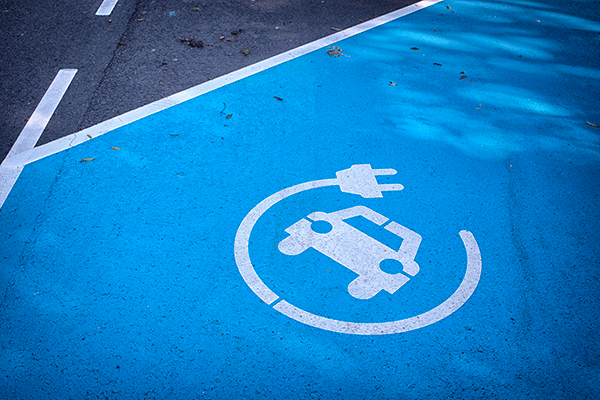 As sustainable technologies continue to expand into the marketplace, the demand for better batteries rises. Many researchers in the field are looking toward all-solid-state batteries as a promising venture, citing safety and energy density properties. Now, one company is looking to take that work from the lab to the marketplace.
As sustainable technologies continue to expand into the marketplace, the demand for better batteries rises. Many researchers in the field are looking toward all-solid-state batteries as a promising venture, citing safety and energy density properties. Now, one company is looking to take that work from the lab to the marketplace.
Electric car maker Fisker has recently filed patents for solid state lithium-ion batteries, stating that mass scale production could begin as soon as 2023. The patent covers novel materials and manufacturing processes that the company plans to use to develop automotive-ready batteries.
Unlike other types of rechargeable batteries that use liquid electrodes and electrolytes, solid state batteries utilize both solid electrodes and solid electrolytes. While liquid electrolytes are efficient in conducting ions, there are certain safety hazards attached (i.e. fires if the battery overheats or is short-circuited). In addition to better safety, solid electrodes could also impact battery cost and energy density, opening up new possibilities for large scale storage applications.
But Fisker is certainly not the first entity to examine the potential of solid state batteries. Many researchers in the field have been working at the fundamental level to address the barriers faced in developing solid state batteries. Early in 2017, a team from MIT made strides in the technology by probing the mechanical properties of a sulfide-based solid electrolyte material. In July, another research team developed new insights into the technology, finding new information on reasons behind battery failure. And possibly the most notable work came in March, when John B. Goodenough led a team that claimed the development of the first all-solid-state battery cells.
Fisker’s team of researchers includes the co-founder of Sakti3, a company that started looking into solid state batteries in 2011.
This from Green Car Congress:
Fisker’s solid-state batteries will feature three-dimensional electrodes with 2.5 times the energy density of lithium-ion batteries. Fisker claims that this technology will enable ranges of more than 500 miles on a single charge and charging times as low as one minute—faster than filling up a gas tank. Fisker anticipates the technology to be automotive production grade ready from 2023 onwards.
Early results show that Fisker’s solid-state technology enables the construction of bulk three-dimensional solid-state electrodes with 25 times more surface area than flat thin-film solid-state electrodes and extremely high electronic and ionic conductivities—enabling fast charging and cold temperature operation.
According to a statement by Fabio Albano, vice president of battery systems at Fisker, the company is looking to address all issues that impede to the development of solid state batteries, such as electrode current density, cost, limited temperature range, limited availability of materials, and non-scalable manufacturing processes.
However, Fisker is not the only transportation company pursing the solid state battery. Toyota also announced its intention to developing the technology, with a timeline of production by 2020.
Fisker plans to display the battery technology at the Consumer Electronics Show in January.


